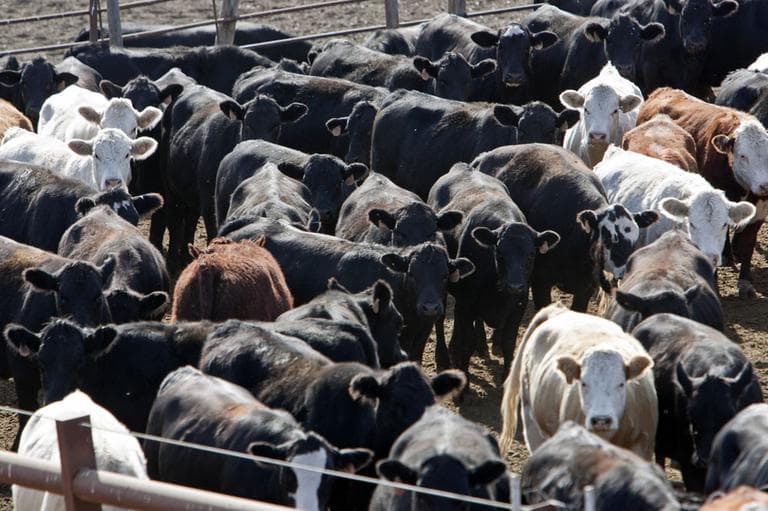Advertisement
Are Antibiotics In Our Meat Breeding Superbugs?
ResumeAntibiotics and the meat we eat. The volumes are huge. Maybe breeding superbugs. We look for a better way.

Everybody knows the basic issue with antibiotics. Overuse them, or casually use them, and you undercut the miraculous effectiveness of one of the most important classes of drugs humans have ever found.
Now here’s a shocker: today, 80 percent of all antibiotics sold in the United States are sold for animals. For livestock. For feed. The meat we eat is overwhelmingly produced in a factory farm system that floats on massive use of antibiotics. Now farms are producing the antibiotic-resistant superbugs that kill.
This hour, On Point: meat, antibiotics, and us.
-Tom Ashbrook
Guests
Rep. Louise Slaughter, Democratic U.S. Representative for New York's 25th district. (@louiseslaughter)
Listen to Rep. Slaughter's segment of the interview here.
Mike Apley, veterinarian and researcher at Kansas State University.
Lance Price, professor of environmental and occupational health at George Washington University.
Stephen McDonnell, founder and CEO of Applegate, a producer of organic and natural meats. (@applegateceo)
From Tom's Reading List
The New York Times "Scientists at the Food and Drug Administration systematically monitor the meat and poultry sold in supermarkets around the country for the presence of disease-causing bacteria that are resistant to antibiotics. These food products are bellwethers that tell us how bad the crisis of antibiotic resistance is getting. And they’re telling us it’s getting worse."
Wired "It is difficult to imagine a study design that could trace specific animals, their meat, and their eaters in a large group of free-living humans; and unless you have volunteers, as Levy did, the study would push ethical boundaries as well. But having that lack of definition in the middle of the animal-to-human bacterial flow permits uncertainty — which proponents of continued ag antibiotic use exploit. A new study of Danish farmers and their livestock may have ended that uncertainty. It is still retrospective, but its observations — using whole-genome sequencing — are so fine-grained that their tracing of the bacterial traffic seems to me to be difficult to challenge."
EMBO Molecular Medicine "We investigated the molecular epidemiology of these livestock-associated mecC-MRSA cases using WGS. Phylogenetic analysis across the entire core genome revealed that the isolates from these cases form two distinct, farm-specific clusters comprising near identical isolates from the human case and from livestock on that farm. Within each cluster, the human and animal isolates only differed by a small number of SNPs, which supports the premise of zoonotic transmission. In-depth genome analysis identified a number of candidate genes and mutations that may be associated with host–pathogen interactions and virulence of this emerging MRSA clone."
This program aired on April 4, 2013.